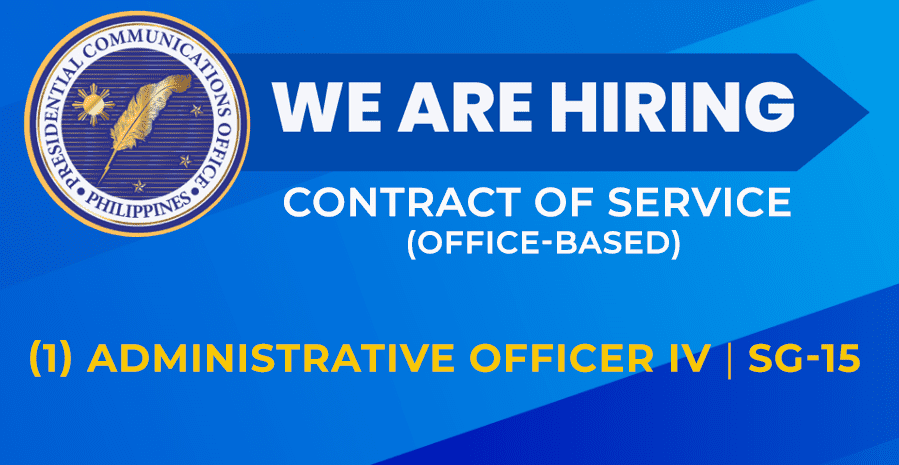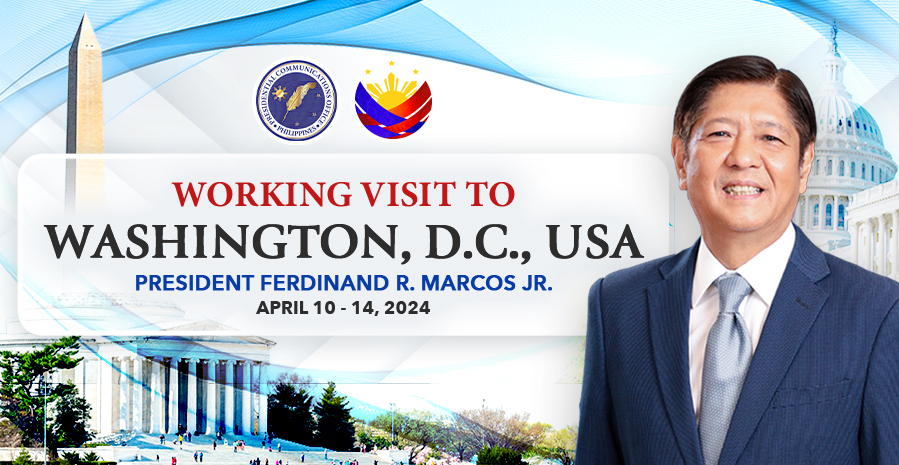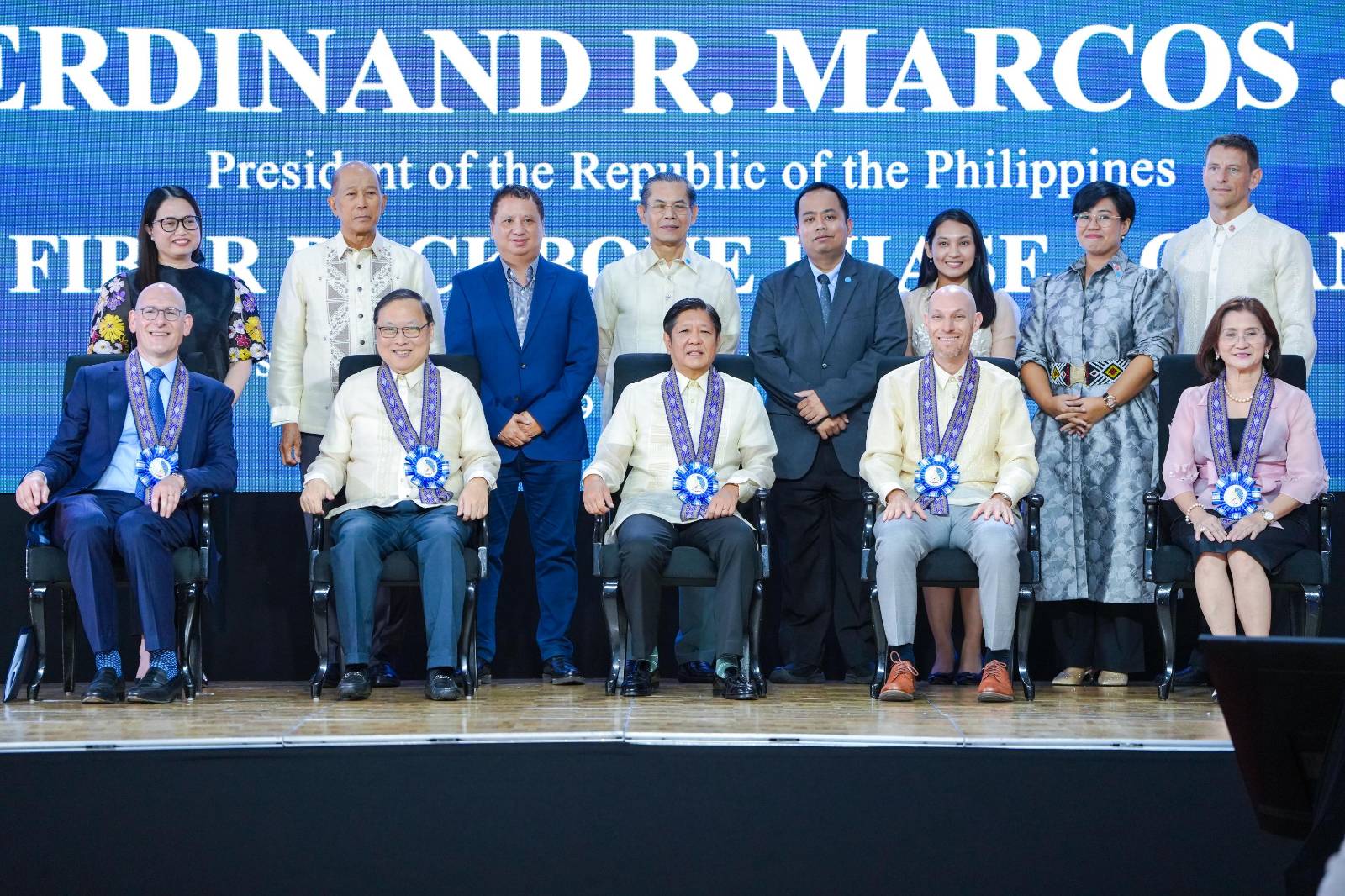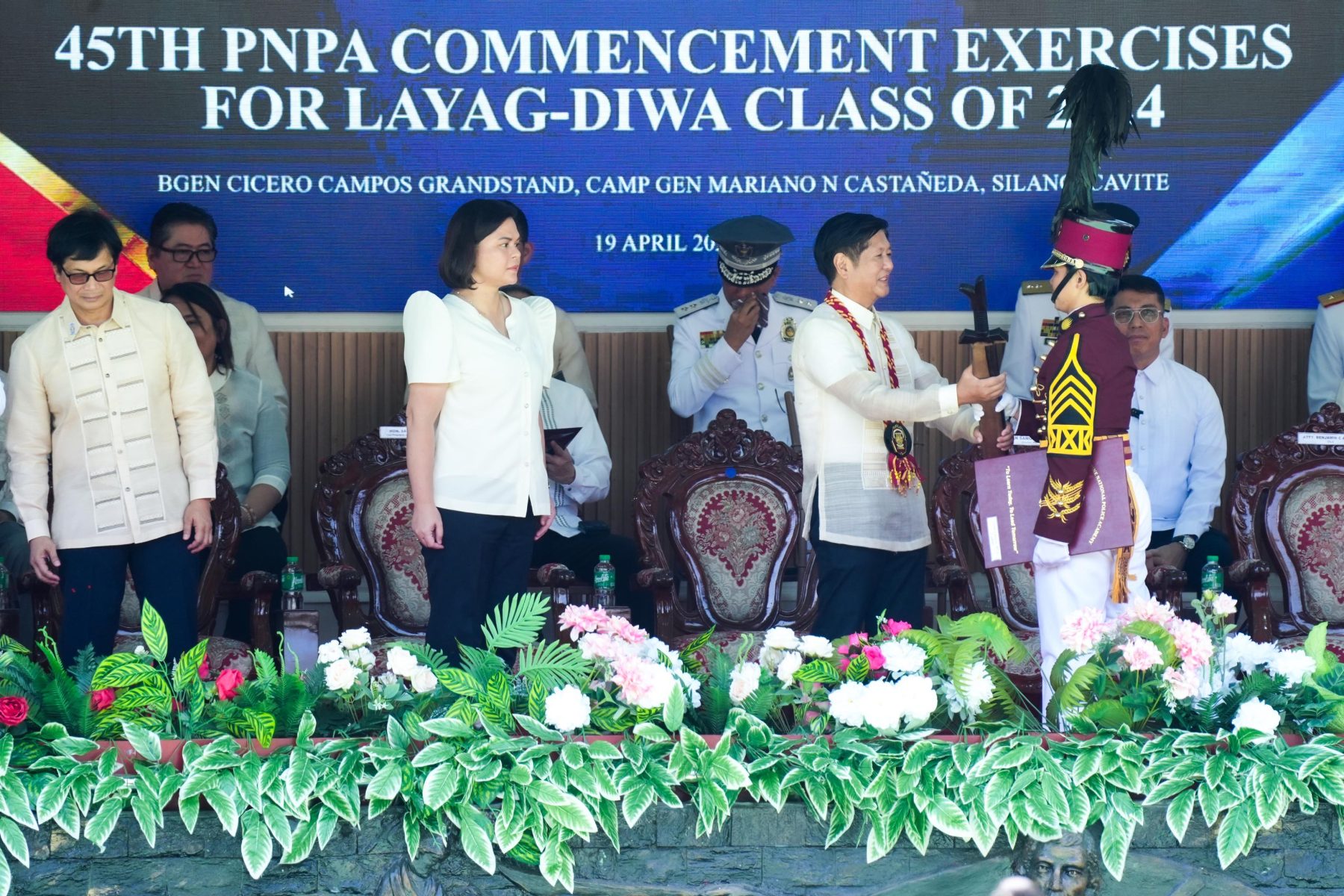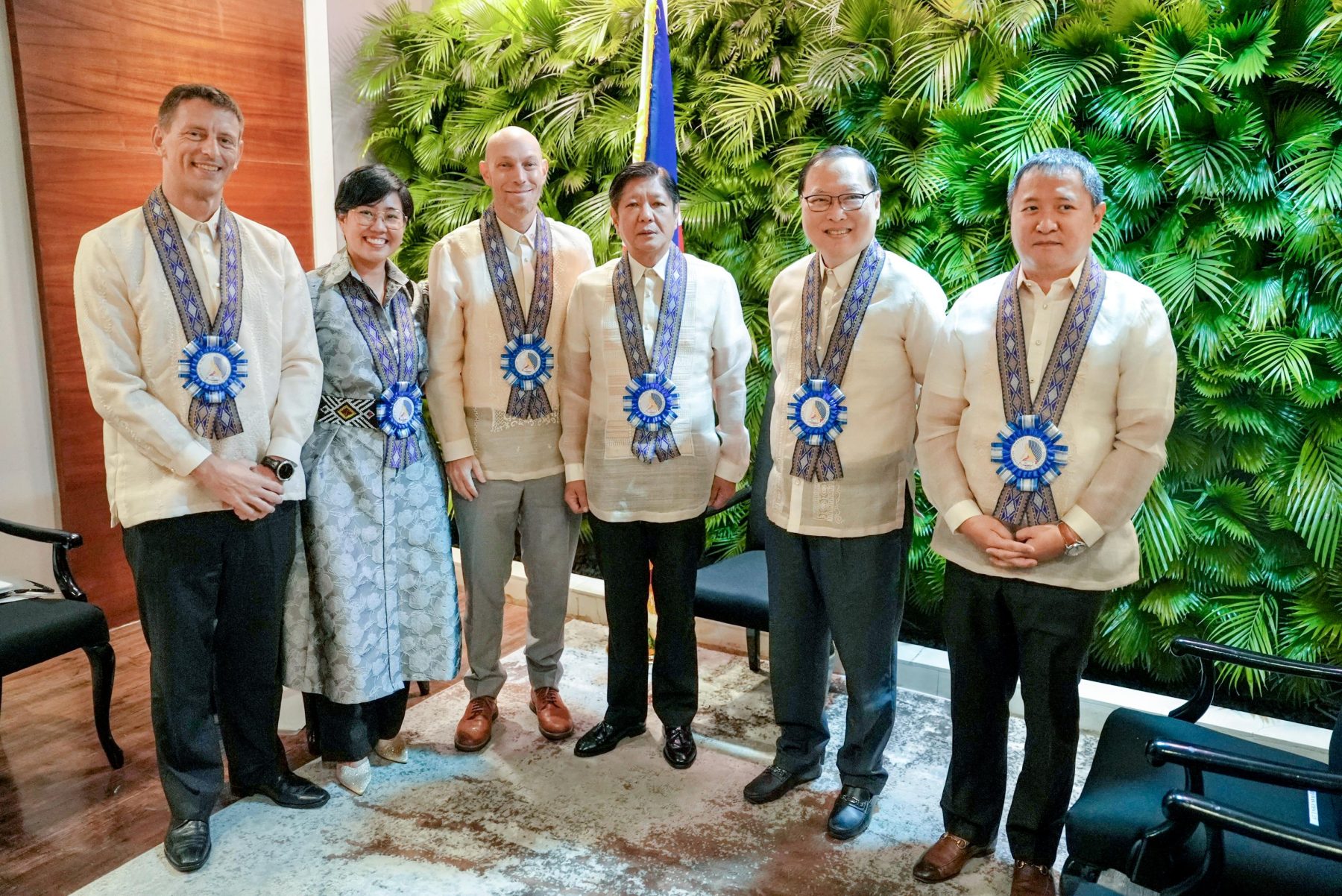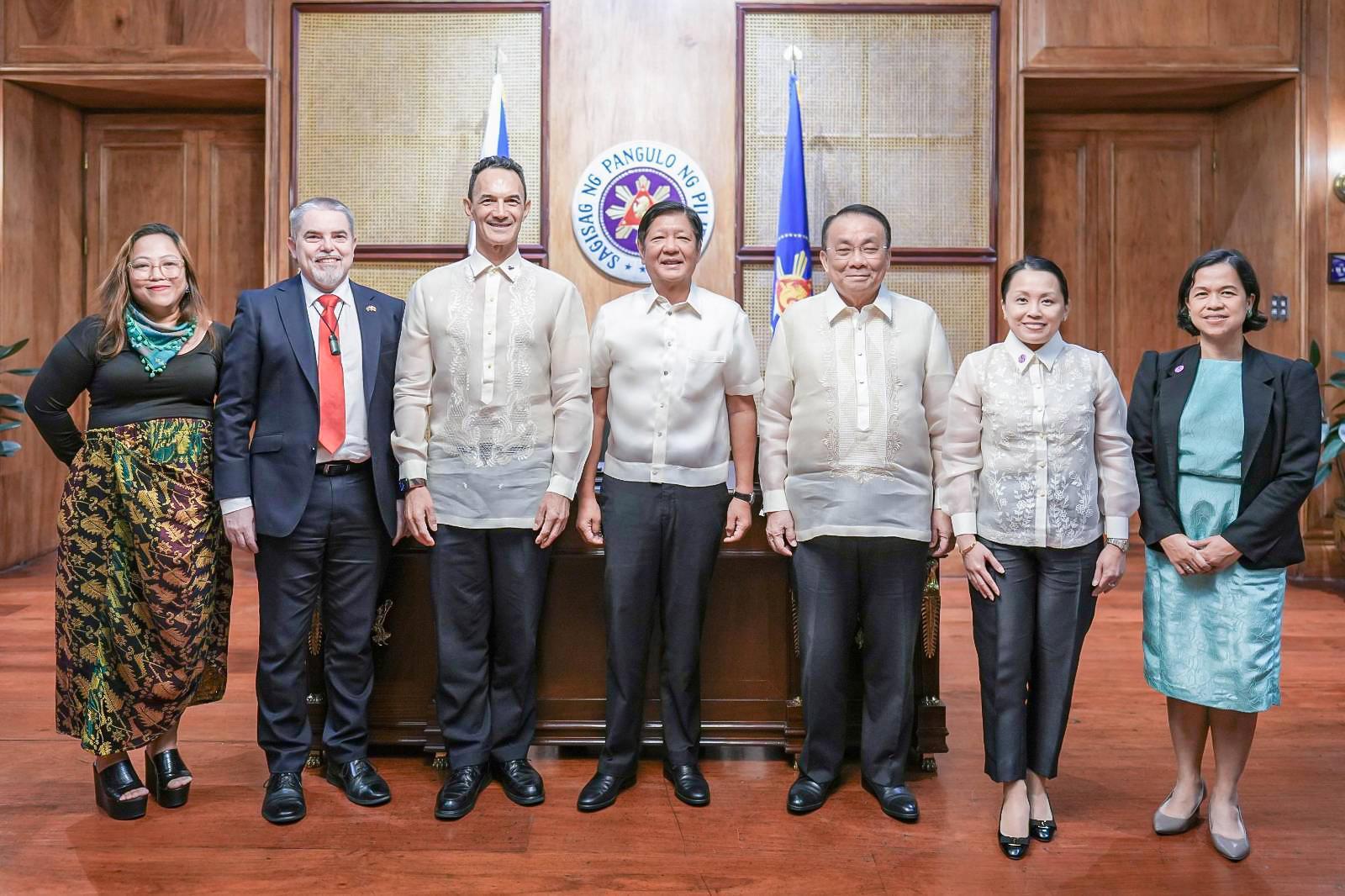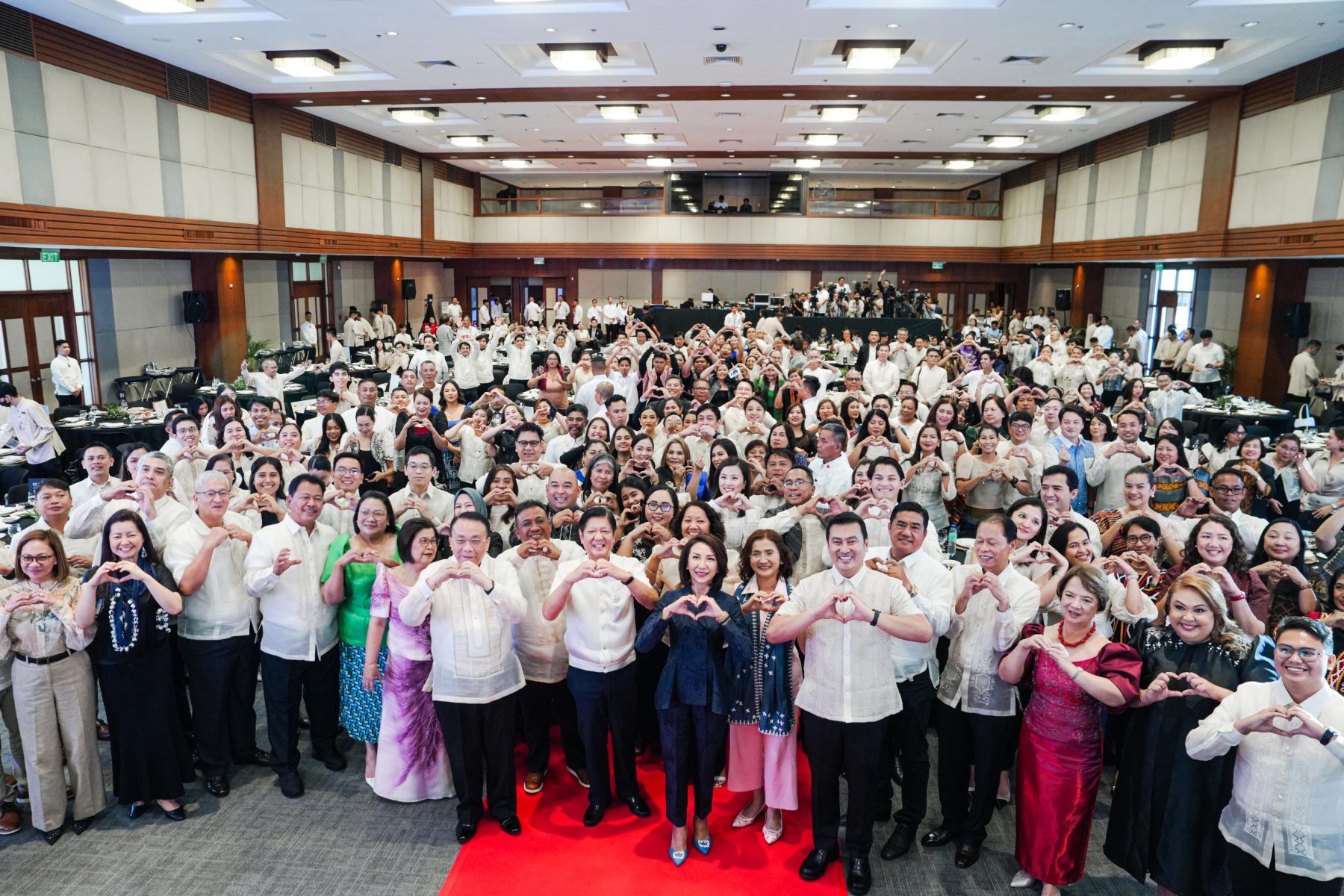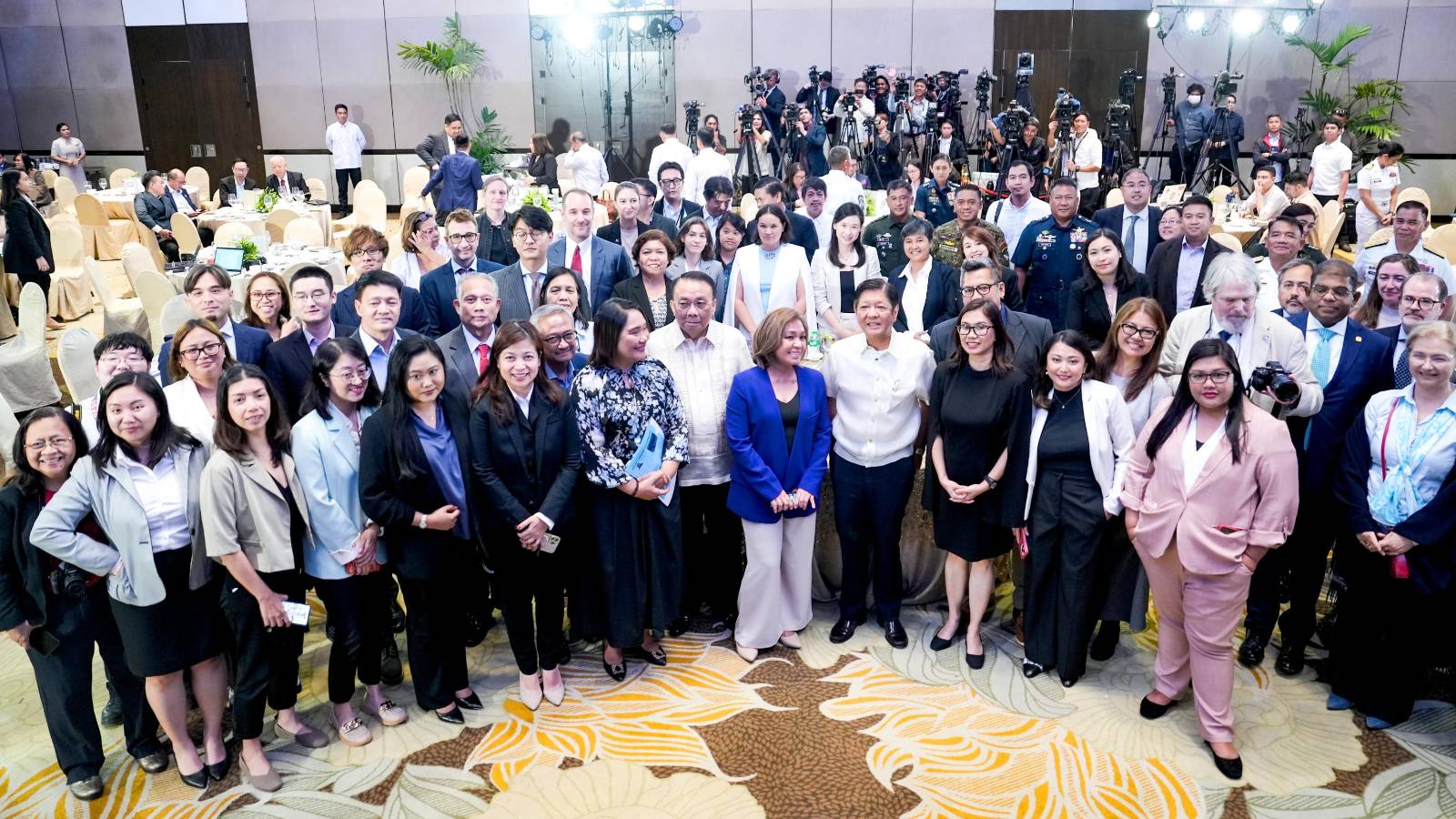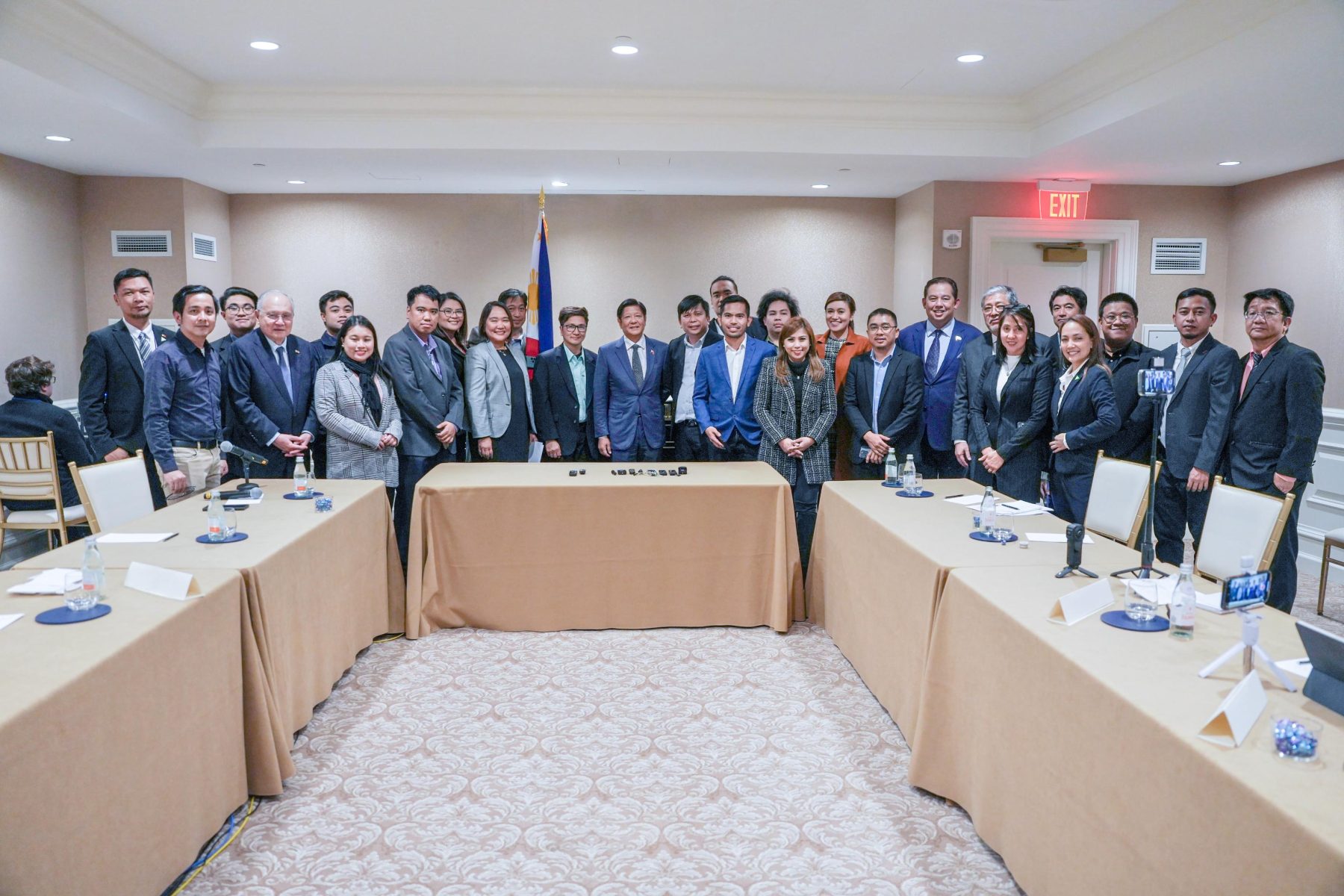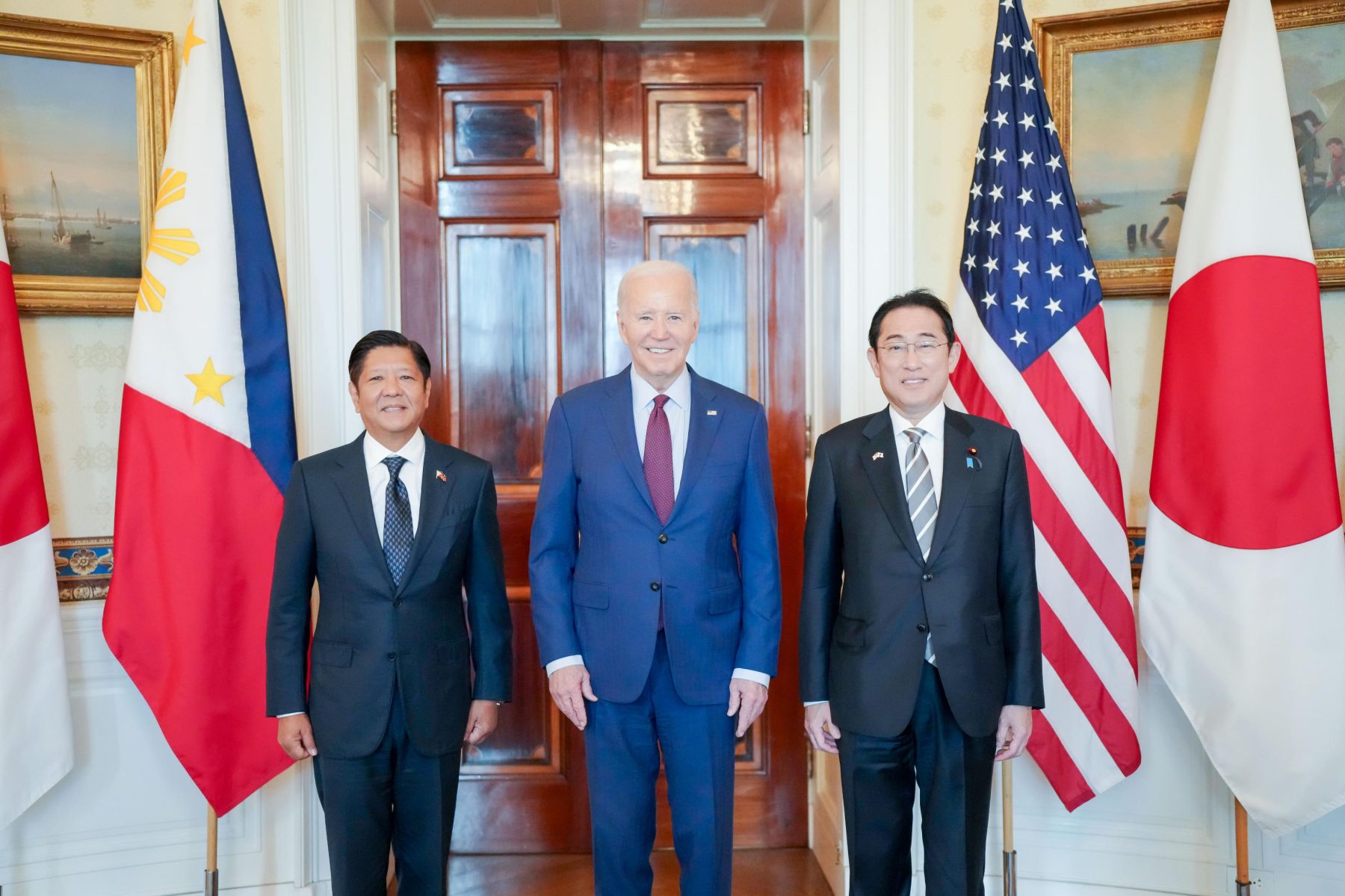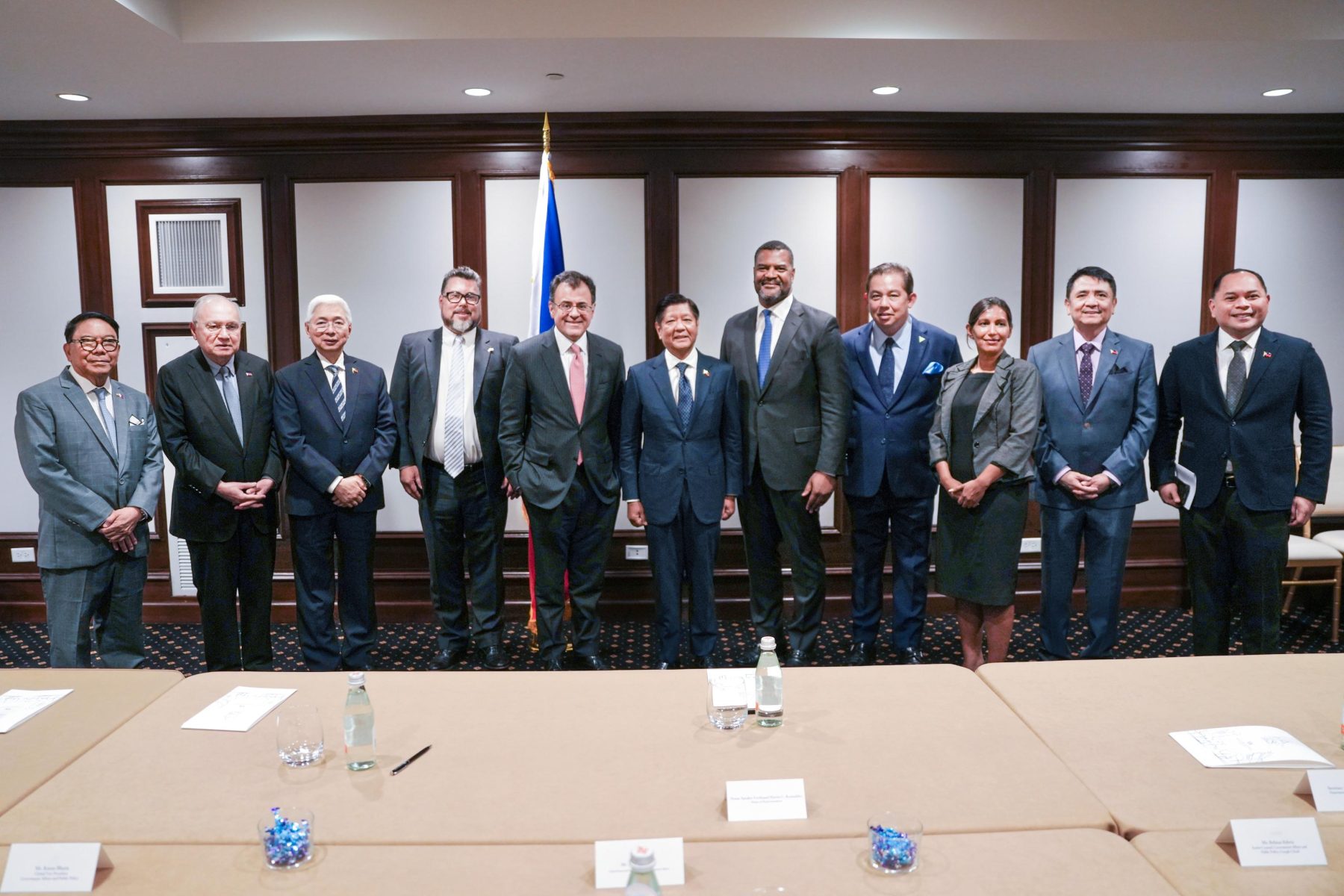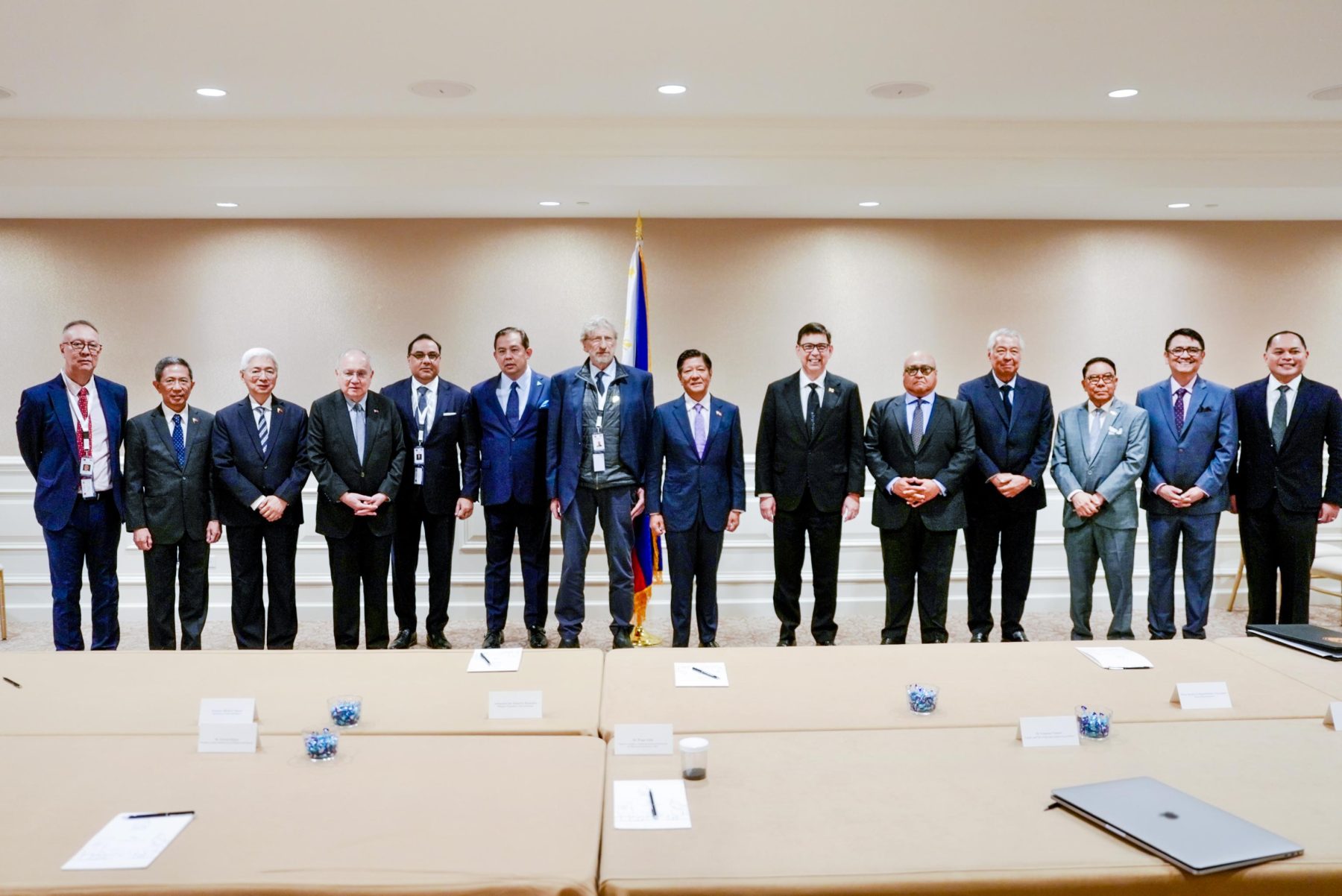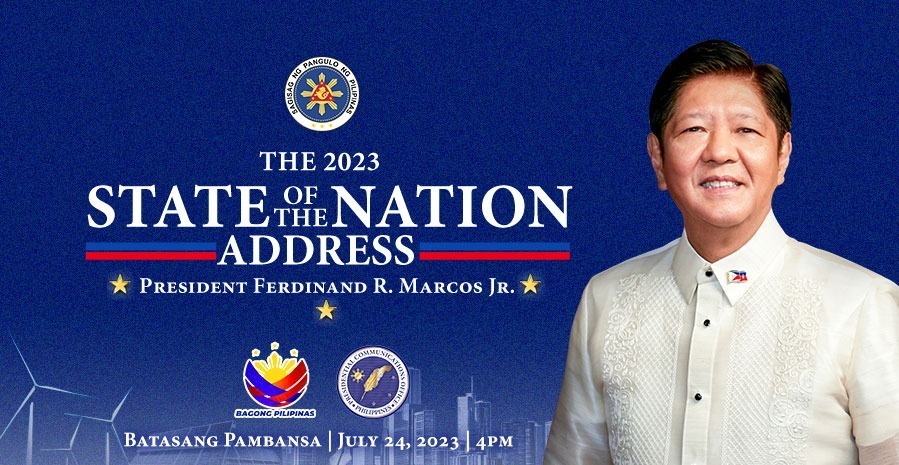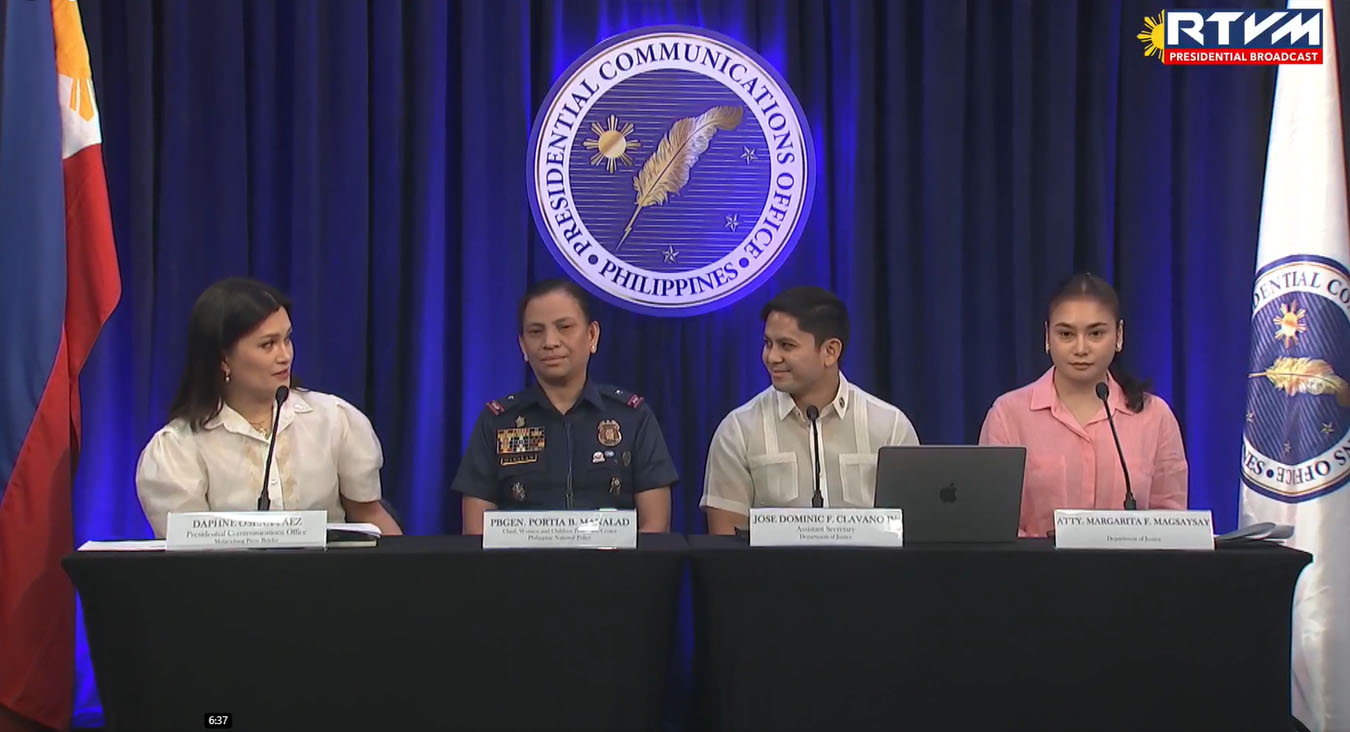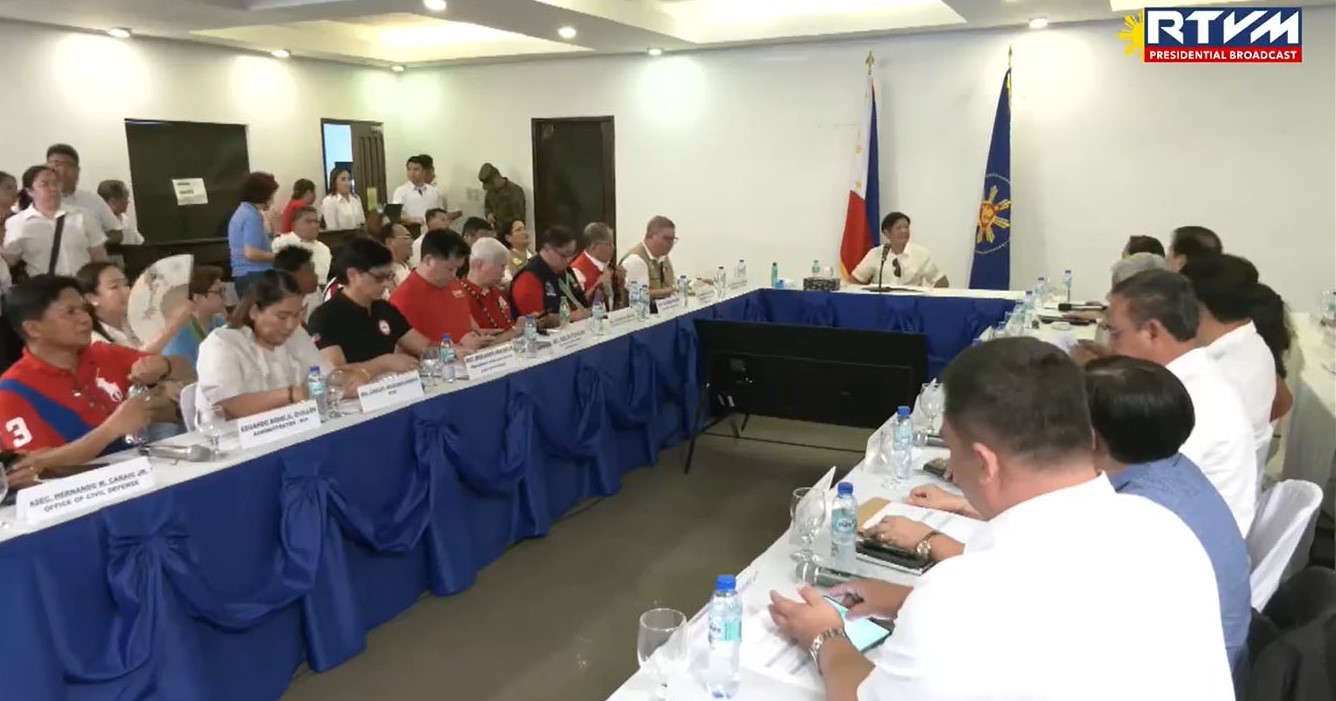November 16, 2015 – News Releases
 |
| 16 November 2015 |
APEC NEWS RELEASES
|
|
|
| President Aquino to hold bilateral meeting with Chilean leader |
| President Benigno S. Aquino III will hold a bilateral meeting with Chilean President Michelle Bachelet on Monday in Malacanang.
Bachelet arrived in the country on Sunday for a state visit and at the same time, attend the Asia Pacific Economic Cooperation (APEC) Summit starting this week. “Si Pangulong Aquino ay nakatakdang tanggapin sa Malacañan Palace ang Pangulo ng bansang Chile, Michelle Bachelet, at siya rin po ay isa sa mga economic leader na mag-pa-participate sa APEC meetings. Ngunit ang kanya pong isasagawa ay isang ‘state visit’ at siya ay tatanggapin ni Pangulong Aquino sa Malacañan Palace,” said Communications Secretary Herminio Coloma in an interview over Radyo ng Bayan. Secretary Coloma said some agreements will be signed after the bilateral meeting. “Magkakaroon ng bilateral meeting na hahantong sa mga kasunduan. Wala pa akong detalye ngayon at ipapahayag natin ito kapag na-firm up na at nakumpirma na lahat ‘nung mga detalye,” Coloma said. The Palace official said there will be a state luncheon in honor of President Bachelet after the signing of agreements. Bachelet is the first among 18 leaders attending the APEC Summit that seeks to expand trade and investment among the countries in the Pacific Rim. Coloma said that after the state visit of Chilean President Bachelet, President Aquino will have a meeting with chief executive officers of APEC member economies. “Mayroon pong diyalogo tungkol sa agenda na tatalakayin sa APEC. Ito po ay tungkol sa inclusive growth na hindi lamang economic leaders ang tumatalakay pati na rin ‘yung mga CEO, mga pinuno ng mga negosyo. Sinisikap nilang itugma ‘yung kanilang mga inisyatiba sa larangan ng negosyo at pangangalakal sa mga economic programs ng mga bansa para matiyak na ‘yung matatamong pag-unlad ng ekonomiya walang maiiwanan. ‘Yan ang buod ng konsepto ng inclusive growth at inclusive economies. Kaya sa panimula pa lamang, lalahok na ang Pangulo sa pakikipagdiyalogo sa mga chief executive ng APEC member economies,” Coloma explained. APEC is made up of 21 member-economies. These are Australia, Brunei, Canada Chile, China, Chinese Hong Kong, Indonesia, Japan, South Korea, Malaysia, Mexico, Papua New Guinea, Peru, Philippines, Russia, Singapore, Chinese Taipei, Thailand, United States, and Vietnam. PND (jm) |
|
|
| Chilean President Bachelet arrives in Malacañang for historic Manila state visit |
| President Michelle Bachelet Jeria of the Republic of Chile arrived in Malacañang Palace on Monday morning for a historic state visit to the Philippines, aimed at expanding trade relations between Santiago and Manila.
President Benigno S. Aquino III welcomed President Bachelet and her official delegation to the Palace. The two leaders are scheduled to hold an expanded bilateral meeting that will produce at least two agreements. They are expected to meet the press for a joint statement after their discussions. President Aquino will also host a state luncheon in honor of the visiting head of state by 12 noon. Earlier, President Bachelet went to the Rizal Monument to lay a wreath in honor of the Philippine national hero. Manila Mayor Joseph Estrada accompanied her during the ceremony and presented her with a symbolic key to the city. President Bachelet timed her trip to the country to coincide with the 27th Asia-Pacific Economic Cooperation (APEC) Leaders’ Summit happening on Wednesday and Thursday (November 18 and 19) at the Philippine International Convention Center in Pasay City. The 64-year old Chilean leader is the first woman to be elected as president of her country and is considered by the prestigious Forbes magazine as the 25th most powerful woman in the world last year. President Bachelet traveled more than 10,000 miles to reach Manila on Sunday afternoon, becoming the first among the 18 world economic leaders expected to arrive in the country for APEC-related events. Chile and the Philippines are both former Spanish colonies. The two countries formally established diplomatic relations on July 4, 1946, when the Philippines gained its independence from the United States. President Bachelet is the first Chilean head of state to visit Manila, according to Chilean Ambassador Luis Lillo. She is currently serving her second term, having previously held office from 2006 to 2010, after a successful re-election bid in 2014. PND (hdc) |
|
|
| Despite terror attacks in Paris, all APEC economies will participate in the Leaders’ meeting next week |
| (MANILA) The Philippines can expect the participation of all 21 economies of the Asia-Pacific Economic Cooperation (APEC) in the leaders’ meeting next week even amid the terror attacks in Paris, said Foreign Affairs Undersecretary Laura del Rosario.
She said she has not received any notice of cancellation of participation from the APEC leaders and representatives. During a press briefing at the International Media Center at the World Trade Center in Pasay City Sunday, del Rosario warned people against reading “too much” into why a particular leader cannot attend the summit. She cited as example Russian President Vladimir Putin’s decision to send his Vice President, Dmitry Medvedev, instead to the meetings. Medveded was Russia’s president in 2008 and 2012. “So, in effect, that level is also something that I think deserves recognition that Russia is really . . . it finds APEC very important,” del Rosario, also the chair of APEC’s Senior Officials’ Meeting (SOM), said. And although Indonesian President Joko “Jokowi” Widodo chose to stay behind in Jakarta to address domestic issues, he sent Vice President Jusuf Kalla, who is “one of the most ablest executives and politicians” in Indonesia. “We welcome really his participation in APEC and I know that he will contribute a lot in the discussions of the issues before APEC,” del Rosario said. She added that it is but right for a leader to prioritize domestic issues over attending international meetings with world leaders. “You take it as a leader’s priority that if there’s something happening in the domestic front, they do want to pay attention to that especially since this week is a very long week for them.” A number of international forums are taking place this week until the end of the month. Among them were the G20 Meeting in Turkey, the APEC Leaders’ Summit in Manila, and the Asean Summit Meeting in Malaysia. President Barack Obama, for example, is due to attend the three events, which would last for seven to eight days. But del Rosario noted that there were leaders “who do not want to stay longer than five days away, you know, from their countries especially since things are very fluid.” Meanwhile, the SOM chair said she has not been informed by reports that an Islamic State faction based in Mindanao is planning attacks during the APEC week. “I have not been informed about that.” Del Rosario also refused to talk about the impact of the Paris attacks on the security preparations for the APEC leaders’ meeting. The Friday 13th attacks in Paris killed 128 people and injured more than 200. If there are indeed heightened security at the AELM because of what happened in France, del Rosario said she cannot discuss it in details. “Security issues should really remain off, you know, off radar. Meaning, we don’t want people knowing what you are doing, right? But definitely, it came that there are heightened security measures.” (PCOO-APEC Communications Team) |
|
|
| PHL fully compliant with APEC environmental goods initiative – APEC SOM Chair |
| (MANILA) The Philippines is now fully compliant with the landmark commitment among the Asia-Pacific Economic Cooperation (APEC) members to cut tariffs on environmental goods by year’s end.
Foreign Affairs Undersecretary and Chairperson of APEC Senior Officials’ Meeting Laura del Rosario said APEC member economies are working on compliance to an agreement to bring down tariff on 54 environment goods to five percent. “…So that people will continue to buy more environmental goods. That 54 (goods) hopefully—we hope that it can expand but we are not yet talking about expansion until we review really all the compliance. I think for the Philippines, we’re 100 percent compliant,” she in a press briefing. The APEC list of environmental goods includes waste water purifying equipment, solar panels and wind turbines. The region’s Leaders launched the undertaking and set a three-year deadline in 2012. “In fact, we think of the economy as a whole that’s why we’re looking at environmental goods because we’re looking at, you know, the effects of climate change, environment and that,” she added. However, Del Rosario stressed that she is uncertain whether APEC member economies are amenable to expanding product coverage. “To expand them will require another negotiation but I don’t know whether we would like that in APEC or whether we would want to introduce that in WTO (World Trade Organization) because I know that WTO is negotiating the environmental goods and services,” she said. But Del Rosario bared that APEC economies are looking at developing the environmental services especially with the APEC Services Cooperation Framework. “I don’t know whether some economies will introduce the environmental services within that framework, which I’m happy to announce has been approved,” she said. The two-day concluding Senior Officials’ Meeting ended here on Saturday. PNA (ldv) |
|
|
| Chinese leader’s visit to Manila a ‘symbolic act’ of APEC unity – SOM Chair |
| (MANILA) The Philippines described the upcoming visit of Chinese President Xi Jinping to Manila for the Asia-Pacific Economic Cooperation (APEC) Economic Leaders’ Meeting as a symbolic act that shows there is unity among the APEC member-economies
“The visit of President Xi Jinping is really a symbolic act in the sense that it will not just strengthen bilateral relations but it will also show the rest of APEC the role and importance of APEC in the region and China is one of its active players,” said APEC Senior Officials’ Meeting and Foreign Affairs Undersecretary Laura del Rosario in a press held at the International Media Center of the World Trade Center here in Pasay City Sunday. “It will also send the message across the region that APEC — I mean, that all of us are working as a team and as a forum together to address our common economic security concerns,” Undersecretary Del Rosario added. The Chinese Embassy in Manila earlier confirmed that the Chinese Foreign Ministry has officially announced that President Xi will attend the APEC Economic Leaders Meeting. Currently, China has several issues regarding claims on territories in the Southc China Sea including that of the Philippines, Vietnam, Malaysia, Taiwan and Brunei. (PCOO-APEC Communications Team) |
|
|
| Security officials do last-minute inspection of International Media Center |
| Security officials did a last-minute check at the International Media Center (IMC) to assess the government’s preparations for its hosting of the Asia Pacific Economic Cooperation Economic Leaders’ Meeting this week.
Defense Secretary Voltaire Gazmin inspected the International Media Center, where foreign and local journalists will be stationing for the entire duration of summit. In an interview with reporters, Gazmin said they are satisfied with the preparations being undertaken by the organizers. Asked about the overall security preparations in light of the recent attacks in France, Gazmin said: “We are preparing for all contingencies and we… That’s why we’re doing our last minute check to make sure that no stones are kept unturned.” He said that following the deadly attacks in Paris, President Aquino has ordered a heightened level of security for the delegates and participants of APEC next week. “We would like to forewarn the public to expect heavy traffic that may cause inconvenience in areas where APEC activities will be conducted,” he said in the advisory. “We advise them to, as much as possible, avoid APEC venues to include all roads leading to these areas next week.” At present, security forces are positioned in Metro Manila beyond the regular deployment scale. He said this should add to the peace of mind and high level of confidence of the public and provide optimism for a fruitful and orderly APEC 2015 leaders’ summit. More than 100 people died in Paris, France, in simultaneous attacks claimed by Muslim extremists. (PCOO-APEC Communications Team) |
|
|
| Trade in APEC seen to recover in 2016 |
| (MANILA) Trade among Asia-Pacific Economic Cooperation (APEC) member economies is expected to slowly recover in 2016, APEC Secretariat officials said in a briefing Monday.
“Trade has contracted in 2015 and this major contraction is a reflection of the slow economic recovery,” said Denis Hew, APEC Secretariat’s director of policy support. The foreseen recovery would be due to external demand and imports, particularly of developing countries among the 21 members of the Asia The actions of the United States and China are particularly seen to affect this recovery. “The concern is with China’s economy, if it will have a hard or a soft landing,” Hew said. “For the US, will they lower interest rates this year or early next year?” At the same time, Hew said private consumption remains the main driver of APEC economies. “Since the crisis, the responses have been more specific to private consumption,” he said. Alan Bollard, APEC Secretariat executive director, said the economies in the Pacific Rim are also concerned about the integration between manufacturing and services. This year, APEC is focused on making the economies more inclusive to include small business, the services sector, environment and disaster recovery-related issues, he said. Advancements in technology, particularly in e-Commerce, will help micro, small, and medium enterprises to become part of the global value chain, Bollard said. APEC initiatives are working on doing this for MSMEs, particularly on free trade agreements and trade facilitation. “Goods must move across the borders for small businesses, as well as larger business, as part of global value chains,” he said. While APEC does not lead in the services sector, the Philippines can show the way, particularly in the trade in services, Bollard said. Most of the concerns on the services sector do not concern tariff, but non-tariff barriers such as regulation on moving capital, people, and data, he said. Bollard noted that there are 150 FTAs in the region. “It is all very complicated. But we will judge it by where they are going, if they are in conflict with each other, if it helps to integrate the region to move to the future,” he said. All these are part of its study on the Free Trade Agreement in Asia and the Pacific, a major project of the formation, to be finalized next year, he added. (PCOO-APEC Communications Team) |
|
|
| Unlike ASEAN, APEC is not concerned with maritime security issues – APEC Secretariat |
| (MANILA) The Asia-Pacific Economic Cooperation (APEC) Secretariat’s executive director said on Monday that although countries in the Asia-Pacific region could be directly impacted by any maritime insecurity, there has been no mention of maritime security issues during his meetings with delegates.
“APEC is about economic methods, only about economic methods. We are not like ASEAN (Association of Southeast Asian Nations) that would include security issues,” Dr. Alan Bollard said during a press briefing at the International Media Center at the World Trade Center in Pasay City. “Formally, around APEC tables, those things get discussed, and they are not part of formal APEC agenda. Personally, I’m not hearing about concerns like that on the trade side,” he added. China, the Philippines, Taiwan, Vietnam, Malaysia and Brunei Darussalam–all members of the APEC–are claimants to the Spratlys chain of islets and reefs in the West Philippine Sea, with the Philippines even filing an arbitration case against China’s nine-dash line claim that covers 90 percent of the entire resource-rich area. Concerns about freedom of navigation and trade in the region, where an estimated US$5 trillion of annual seaborne trade pass, have intensified since China transformed a number of reefs into islands. However, China, whose president, Xi Jinping, will be arriving on Tuesday to attend the APEC leaders’ meeting on Wednesday and Thursday (November 18 and 19), earlier asked the Philippines not to bring up the issue during the summit. The Philippines agreed, but said it cannot control topics that other nations would like to raise, especially during their bilateral meetings. Bollard agreed that the forum, which brings together 21 economies from the Pacific Rim, is not the proper venue to discuss maritime and security issues. He said a number of leaders and representatives will be meeting in private, “taking advantage of the fact that they are all here”. However, he said he is not privy to those talks, and whether or not maritime security and freedom of trade in the region would be tackled. Bollard said leaders would also have the chance to talk about their security concerns at the ongoing G20 Meeting in Turkey. “They are clearly talking about security methods,” he said. After the APEC meeting in Manila, the leaders would also be heading to Malaysia for the ASEAN Summit, “where they can talk about security matters”. Traditionally, Bollard said, leaders and ministers of the APEC economies work to “get trade up” and “to treat this as an economic forum”. “We are confident that it will continue this year,” he added. (PCOO-APEC Communications Group) |
|
|
| Philippines recognized for showing leadership in APEC on women empowerment |
| (MANILA) The executive director of the Asia-Pacific Economic Cooperation (APEC) Secretariat on Monday hailed the Philippines for leading the world in terms of women’s participation in economic progress.
Dr. Alan Bollard said the Philippines “is showing leadership” on women’s activities in the country’s economy. “The Philippines is the only economy in APEC where women own most of businesses. Clearly, it is a big opportunity for the Philippines to talk about that and lead a number of economies,” he said during a media briefing at the International Media Center at the World Trade Center in Pasay City. He cited the Philippines’ initiatives and programs that pave the way for women to participate freely in the economy. Bollard noted the role of women in small businesses and in technology, and lauded the Philippines for making finance more accessible to women entrepreneurs. He added that the Philippines is also “very advanced” in the services sector, specifically in business process outsourcing (BPO), backroom services and “increasingly”, in front office services. This year’s APEC agenda included looking at the barriers that hinder the progress of the service sector. However, Bollard said, most of these are non-traditional barriers, “likely regulatory (and) getting people capital information”. (PCOO-APEC Communications Team) |
|
|
| Development of APEC-wide free trade zone ensures greater regional economic integration and reform – APEC Secretariat |
| (MANILA) With an estimated 150 trade agreements around the region, the Asia-Pacific Economic Cooperation (APEC) does not want to see these pacts going off in different directions, the executive director of the APEC Secretariat has said.
“It is very complicated,” Dr. Alan Bollard told reporters during a press briefing held at the Main Briefing Room of the International Media Center at the World Trade Center here on Monday. To ensure that there is no overlap or that no conflict arises out of the copious free trade agreements among APEC member economies, the Free Trade Area of the Asia Pacific (FTAAP) was proposed, Bollard said. “We are working on a strategic study on the Free Trade Area of the Asia Pacific,” he noted. Bollard explained that the APEC sees the FTAAP “as the way we can judge where all those initiatives are going”. “We’ll bring (all trade agreements) into the study, see how they fit together, and move forward from there,” he stated. Although the proposal for such an area has been around since at least 1966, with the proposal for a Pacific Free Trade, the APEC formally began discussing the concept of FTAAP during its summit in 2006 in Hanoi. The FTAAP would create a free trade zone that would considerably expand commerce and economic growth in the region. Its development, however, is expected to take many years, involving essential studies, evaluations and negotiations among member economies. According to experts, it is also affected by the absence of political will and popular agitations, as well as lobbying against free trade in domestic politics. At the 2014 APEC summit in Beijing, APEC leaders agreed to launch “a collective strategic study” on the FTAAP and instruct officials to undertake the study, consult stakeholders, and report the result by the end of 2016. “The FTAAP will be reviewed by the ministers,” said Bollard who earlier predicted that the FTAAP will be the “APEC’s big goal out into the future”. “It will be finalized next year,” he said. “It is chaired by both China and the United States.” (PCOO-APEC Communications Team) |
|
|
| Philippines eyes free trade deal with Chile |
| The Philippines and Chile on Monday signed a letter of intent on a joint feasibility study that would look into the benefits of a free trade agreement between the two countries.
President Benigno S. Aquino III and Chilean President Michelle Bachelet witnessed the signing of the Letter of Intent by Philippine Trade and Industry Secretary Gregory Domingo and Chilean Foreign Affairs Minister Heraldo Muñoz in Malacañang Palace. The Letter of Intent signifies the Philippines’ and Chile’s intent to commence discussions on developing a framework for negotiating a mutually beneficial trade agreement that is flexible and pragmatic as to its depth and scope, which may contribute to an increase in trade, in goods and investments, and the promotion of technical cooperation in areas of mutual interest. “The Philippines and Chile have enjoyed warm relations for almost seventy years: relations founded on a shared history, and commonalities in faith, tradition, culture, and values. Our gathering today is indicative of our shared desire to advance this partnership. The President and I had engaging and broad-ranging discussions on the need to strengthen our relationship and also to explore new opportunities for cooperation,” President Aquino said during a joint press conference with President Bachelet at the Palace’s Reception Hall. “President Bachelet and I witnessed the signing of a Letter of Intent on Enhancing Trade Relations. Through this, we mandate the Department of Trade and Industry of the Philippines and the General Directorate for International Economic Relations of Chile to continue talks in 2016 and develop a framework for a mutually beneficial trade agreement between our countries,” President Aquino further said. President Bachelet, on the other hand, said her state visit “has been an excellent opportunity to deepen ties and to establish a substantial work agenda in bilateral areas”. “In the bilateral area, Chile and the Philippines are seeking to promote and diversify trade, and because of that, we are initiating talks regarding free trade agreement,” said the Chilean leader, who is also attending the Asia-Pacific Economic Cooperation (APEC) Summit. “In order to take the first step, today we signed the Letter of Intent in which we commit ourselves to conclude a feasibility, joint study to evaluate the potential benefits of a free trade agreement. Our wish is to start negotiation during the first semester of 2016 because we think it would be a good way to commemorate the 70 years of diplomatic relations between both countries,” she added. The Letter of Intent on Enhancing Trade Relations is one of two agreements signed by the Philippines and Chile after President Aquino and President Bachelet’s expanded bilateral meeting held at Malacañang’s Aguinaldo State Dining Room. Present during the bilateral meeting were Foreign Affairs Secretary Albert Romulo and Undersecretary Luningning Lacanlale; Presidential Management Staff head, Secretary Julia Abad; Presidential Spokesperson Edwin Lacierda; Energy Secretary Zenaida Monsada; Finance Secretary Cesar Purisima; Executive Secretary Paquito Ochoa, Jr.; Defense Secretary Voltaire Gazmin; Social Welfare and Development Secretary Corazon Soliman; Communication Secretary Herminio Coloma, Jr., Cabinet Secretary Jose Rene Almendras; National Disaster Risk Reduction and Management Council Undersecretary Alexander Pama; and Philippine Ambassador to Chile Consuelo Puyat-Reyes. The officials from Chile were Minister Counselor Camilo Sanhueza; Minister Counselor Patricio Victoriano, Ministry of Foreign Affairs Office of Asia and Pacific Affairs director; Ambassador Gloria Navarrete, Ceremonial and Protocol general director; Ambassador Jorge Montero, Embassy of Chile chargé d’affaires; Ambassador Andres Rebolledo, vice minister of Commerce; Ambassador Maria del Carmen Domingues, Ministry of Foreign Affairs Strategic Planning director; Haydee Rojas, chief of press of the Presidency; Paulina Nazal, director of Multi-lateral Economic Affairs of the General Directorate of International Economic Relations; and Maria Fernanda Vila, consul at the Embassy of Chile. PND (jm) |
|
|
| Philippines, Chile agree to help each other in mitigating disasters |
| The Philippines and Chile on Monday signed a memorandum of understanding (MOU) on disaster risk reduction and management.
Following their expanded bilateral meeting in Malacañang Palace, President Benigno S. Aquino III and his Chilean counterpart, Michelle Bachelet, witnessed the signing of the MOU, led by Defense Secretary Voltaire Gazmin, who also chairs the National Disaster Risk Reduction and Management Council, and Chilean Foreign Affairs Minister Heraldo Muñoz. Geographically situated in the Pacific Ring of Fire, the Philippines and Chile often deal with earthquakes that range from mild to disastrous. The MOU aims to strengthen the two countries’ cooperation in the area of disaster risk reduction and management, with special emphasis on the process of prevention and mitigation, preparedness, response and rehabilitation. “In that way, we will diminish and prevent the impact caused by natural disasters in our territories and strengthen at the same time, the bilateral coordination of humanitarian response,” President Bachelet told reporters during a joint press conference with President Aquino at the Palace’s Reception Hall. For his part, President Aquino noted that disaster relief is one area where the Philippines and Chile have always stood united. He said the agreement would institutionalize cooperation between both governments in preparation for and during the onset of natural disasters. He thanked Chile and its people for their assistance and sympathy in the aftermath of super typhoon ‘Yolanda’ (Haiyan) in 2013, as President Bachelet extended the same for the Philippines’ expression of solidarity during Chile’s most recent brush with disaster. A magnitude 8.3 quake hit Chile’s Illapel town last September, which was followed by several aftershocks. The Chilean government reported 13 casualties from the incident with six people missing. Both countries suffered devastating quakes these past five years. In 2010, a magnitude 8.8 earthquake rocked Chile’s offshore Maule region, where more than 500 people died and 25 were reported missing. Three years later, a magnitude 7.2 earthquake shattered several towns in Central Visayas, particularly the provinces of Bohol and Cebu, resulting in more than 200 casualties with nearly 1,000 people injured. President Bachelet is on a state visit to the Philippines, coinciding with her participation in the 27th Asia-Pacific Economic Cooperation Leaders’ Meeting in Manila on Wednesday and Thursday (November 18 and 19). PND (hdc) |
|
|
| APEC told to focus on integration, broaden participation and remove trade barriers to achieve inclusive growth |
| (MANILA) To promote inclusive growth in the region, the Asia-Pacific Economic Cooperation (APEC) must continue pursuing integration, focus on broadening participation, and remove barriers to trade participation, a ranking official of an independent non-profit policy organization said on Monday.
“This is a very challenging environment for growth,” Eduardo Pedrosa, Secretary General of the Pacific Economic Cooperation Council (PECC), said during a press briefing held at the Main Briefing Room of the International Media Center at the World Trade Center here. Founded in 1980, the PECC is a network of member committees composed of individuals and institutions dedicated to promoting cooperation across the Asia-Pacific region. It has 23 full member committees, including the Philippines. According to Pedrosa, what the world is seeing now is the lowest growth rate for the Asia-Pacific region since 2010, hence the urgent need for growth strategies. “There are many things the region needs to do to further promote inclusive growth in the APEC region,” he noted. Pedrosa identified the priorities that APEC leaders should focus on — progress towards the Bogor Goals and free trade area within the region; the APEC’s growth strategy; micro, small and medium enterprises (MSME) participation; anti-corruption efforts; and climate change cooperation and disaster resilience. The question is, where will future growth come from, considering that much of the growth post-crisis was sustained via stimulus, fiscal or monetary, he said. “There are some initiatives that could provide a substantial boost to growth,” said Pedrosa. “For example, TPP (Trans-Pacific Partnership) negotiations.” The TPP is a trade agreement among 12 Pacific Rim countries concerning a variety of matters of economic policy. Among other things, the TPP Agreement contains measures to lower trade barriers, such as tariffs, and establish an investor-state dispute settlement mechanism. The agreement’s goals include promoting economic growth; supporting the creation and retention of jobs; enhancing innovation, productivity and competitiveness; raising living standards; reducing poverty; and promoting transparency, good governance, and enhanced labor and environmental protections. Pedrosa said other propositions that could help boost economic growth include the APEC Connectivity Blueprint, and the Association of Southeast Asian Nations (ASEAN) Economic Community. (PCOO-APEC Communications Team) |
|
|
| Philippines remains attractive to APEC investors – CEO survey |
| (MANILA) The Philippines remains an attractive investment destination among companies from the Asia-Pacific Economic Cooperation (APEC) member economies, given its large domestic market and highly talented labor pool.
The PwC network’s 5th annual APEC CEO Survey, covering 800 chief executive officers (CEOs) and industry leaders, indicates that about half of them still intend to raise investments next year, particularly in the Philippines, Vietnam and Singapore. The majority of CEOs (53 percent) planned to increase investments, with most of that investment (68 percent) aimed at the APEC region, despite their dwindling confidence in revenue growth. Chairman and senior partner at PwC Philippines, Alexander Cabrera, identified the huge domestic market and availability of talent as the Philippines’ competitive advantage. “The Philippines is a nation of very good professionals – doctors, accountants, architects and engineers… Because the skills will move more freely and they know that the Philippines is a source of those skills, that is really raising their (CEOs) confidence level that if they come here, if they bring the business to the Philippines, that there will be enough (human) resource here to support that business,” he said in an interview. To further attract investments, Cabrera underscored the need to simplify doing business in the Philippines to be on a par with global economies. He noted that the country should also continue to focus on the development of small and medium enterprises (SMEs). “If these SMEs will be assisted during their formative stage, if the time that they can access the foreign markets will be shortened, if they will be part of the value chain of the big corporations, that will produce the inclusive growth that is really important,” he added. Cabrera further said that the country’s middle class needs to be enlarged. “That effectively expands the domestic market of these businesses in the Philippines. That is also a big source of business growth,” he said. Meanwhile, the PwC survey shows a clear diversification of investments within the APEC region, with China, the United States and Indonesia remaining as the main draw for CEO business investments. “I think (on) diversification of the investment locations, we are really beneficiaries of the slowdown in China,” Cabrera said. He observed that Philippine CEOs appear to be unaffected by the coming elections. “I think the fact they remained optimistic about revenue growth may prove maybe the point of some prophets of boom. They are saying that regardless of who wins in the next elections, the economic gains of the Philippines are irreversible,” added Cabrera. More of the 800 APEC business leaders surveyed – PwC’s largest sample ever — think that expanded broadband access and increased participation in the digital economy hold the most promise for their business from regional connectivity, ahead of regional trade projects or new infrastructure in underdeveloped areas of the region. They are also optimistic a free trade area in the Asia Pacific could be a reality by 2020, as regional integration proceeds on several fronts. The CEOs consider the ASEAN Economic Community as the ‘mega regional’ game changer, while there are also hopes that the Trans-Pacific Partnership (TPP) would boost exports and fuel regional growth. The PwC’s 2015 APEC CEO Survey, conducted between June 23 and August 21, was released on Monday ahead of the annual APEC Leaders Meeting on Wednesday and Thursday (November 18 to 19). (PCOO-APEC Communications Team) |
|
|
| Paris Climate Change Conference still not included in topics to be discussed during APEC Leaders’ Meeting |
| (MANILA) There is no assurance that the upcoming climate change conference in Paris will be tackled during this week’s Asia-Pacific Economic Cooperation (APEC) Economic Leaders’ Meeting (AELM).
Executive director of the APEC Secretariat, Dr. Alan Bollard, said on Monday that although there are a number of initiatives underway to address climate change issues in the Asia-Pacific region, there was no final statement yet from the leaders regarding the big meeting in France. Bollard said all he could share was that there are discussions focusing on climate change issues, such as the more efficient use of energy, a list of environmental goods whose tariff has to be reduced to 5 percent, and low carbon cities. “So, they will be pointing to all of those. We have to wait and see if they will talk specifically about the coming climate change (conference),” he said. Preparations for the Climate Change Conference (COP21) in Paris, scheduled from November 30 to December 11, were rocked by the Friday the 13th attacks that killed almost 130 people and injured more than 300, 100 of whom were critical. It is not clear if the APEC leaders will issue a statement on the attacks, although climate change issues and disaster preparedness and management have been important topics for this year’s meet. In particular, the meetings placed special focus on the resiliency of the global value chain against natural disasters. Noting that the Philippines, specifically, is prone to disasters, Bollard said the APEC discusses the issue of disasters and how they affect the Asia-Pacific economies. Discussions range from defining how disaster impacts the economies to identifying methods to predict them better. Prior to the APEC leaders’ week, senior officials have already expounded on the need to address the effects of disasters on economies because they derail and disrupt economic activities once the country is hit by disasters. (PCOO-APEC Communications Group) |
|
|
| Philippines, Chile exploring new opportunities for cooperation |
| The Philippines and Chile are exploring new opportunities for cooperation as they look forward to celebrating 70 years of diplomatic ties next year.During their expanded bilateral meeting in Malacañang Palace on Monday, President Benigno S. Aquino III and visiting Chilean leader Michelle Bachelet discussed areas of cooperation that would further maximize their friendship and relationship.
“There is so much potential for growth in our relations,” said President Aquino, citing education and aquaculture as possible areas of cooperation. “For instance, in terms of education, the Philippines can provide technical assistance to Chile’s educational system, by sending Filipinos who can teach the English language in schools. Aquaculture is another area of cooperation we can and must explore: with this being a significant economic activity for both our countries, we can learn much from each other,” the Chief Executive said during a joint press conference with President Bachelet. In a statement, Communication Secretary Herminio Coloma, Jr. said another possible area of cooperation is rice production, as the Philippines could share its technology and expertise in producing rice. Secretary Coloma said President Aquino has sought and obtained support for the Philippines’ prospective application to join the Trans-Pacific Partnership (TPP) after requirements for structural adjustments are addressed by the Philippines. He said both countries will continue to expand cooperation energy and natural resources development. The Palace official said the Philippines’ Energy Development Corporation owns 70 percent of the Mariposa geothermal project in Chile in joint venture with Chile’s Compania de Energia. Coloma added that President Aquino has welcomed and has accepted President Bachelet’s offer of assistance in sharing Chile’s extensive experience in mining development. Meanwhile, President Bachelet said Chile is in the process of requesting its entry to the Association of Southeast Asian Nations (ASEAN) regional forum, the main multilateral forum on security in the Asia-Pacific region. “We know the importance of ASEAN for the Philippines and we would like to count on your support, listen to your experience, and receive your advice in this important matter,” said the Chilean leader. The two state leaders also talked about strengthening cooperation against transnational crime. “The President and I likewise noted the continuing discussion between our respective authorities aimed at strengthening our cooperation against transnational crime, thereby facilitating better coordination between the Philippines’ and Chile’s law enforcement agencies,” said President Aquino. He also acknowledged the “mutually beneficial cooperation between the Philippines and Chile in various multilateral fora, particularly in the United Nations and the Asia-Pacific Economic Cooperation”. “Recognizing the significant momentum that has now been generated by this visit, President Bachelet and I committed to intensify engagement between our countries in multiple areas, which includes the observance of more regular official exchanges. This will allow us to bring the bilateral relations between the Philippines and Chile to a higher and more comprehensive level, and consequently, ensure that we maximize the friendship and relationship between our two countries, for the benefit of our peoples,” said President Aquino. PND (jm) |
|
|


